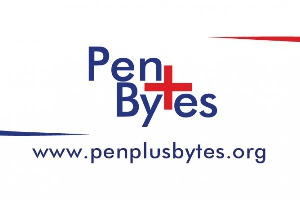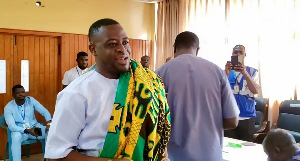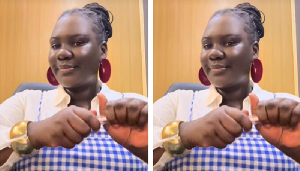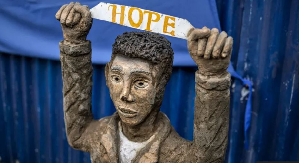Persons with disabilities constitute a significant section of Ghana’s population, but they are faced with a lot of challenges in meeting their basic needs.
This is due to limited access and opportunities to government interventions as well as benefiting from public goods and services.
As a cross cutting issue in all sectors of the economy, the media has a key role to play in making all voices count especially that of PWDs in all aspects of the Ghanaian governance process.
The promulgation of PWD policies by successive governments has had little impact on the lives of PWDs in the country, particularly on their relationship with the media in highlighting their needs and including them in decision-making processes.
The Persons with Disability Act 2006, Act 715 does not say anything about how the media should relate to the PWDs or the nature of reportage on issues of disability in Ghana.
Section 7.5 of the National Media Policy is also not explicit in its mandate to the media “to take cognizance of the vulnerability of children and promote the dignity of women as well as persons with disability in various ways”.
Additionally, most media reportage makes use of inappropriate terms in reference to PWDs and their issues, which are unacceptable in this era of right-based approach to reporting.
Studies have also indicated that media houses concur to the fact that disability issues do not get adequate coverage.
This situation offers both an opportunity and a challenge and another challenge is also the fact that majority of media personnel are stuck in the ‘Charity Model’ of reporting since they normally present PWDs as people who need assistance.
For this reason, Penplusbytes a non-governmental organisation has taken the lead and it is implementing a project to improve media skills in reporting gender equality and social inclusion (GESI) issues in the country.
Penplusbytes works towards driving change through innovations in three key areas - using new digital technologies to enable good governance and accountability, new media and innovations, and driving oversight for effective utilisation of mining, oil and gas revenue and resources.
Under the STAR Ghana funded project titled “Deliver Quality Media Amplifying and Vulnerable Citizens' Voices”, the project seeks to contribute significantly to addressing challenges facing PWDs in areas of health, education and economic opportunities.
A statement issued by the Penplusbytes and signed by Ms. Juliet Amoah, its Executive Director and copied to the Ghana News Agency in Sunyani, said the media played critical role in deepening local governance systems, hence the need to advance the knowledge of practitioners to enable them to be active advocates for the PWDs.
To this end Penplusbytes on Thursday organised Editors’ liaison meeting for editors and senior journalists in Ashanti, Bono and Northern Regions of the country.
“The Editors are the gatekeepers in the newsroom and the liaison meeting is aimed at keeping the Editors abreast with issues affecting vulnerable groups in the country and help to reinforce the need to assign airtime and space in their various media for such content,” the statement explained.
It is also a means to ensure that “alumni from our previous trainings under this same project were given the necessary support in their newsrooms to undertake in-depth and investigative pieces on GESI to inform and educate stakeholders including policy makers”.
“This Editors liaison comes at an opportune time where political parties are gearing up for election activities and it is important for the media to be oriented about issues affecting PWDs, so that their coverage of election activities will be inclusive and promote PWDs needs and set agenda on gender and inclusivity in our body politic,” the statement said.
“A key outcome of this meeting is to develop a concerted approach at having designated desks in major newsrooms in Ghana for reporting PWD issues,” it concluded.
General News of Saturday, 1 February 2020
Source: ghananewsagency.org













